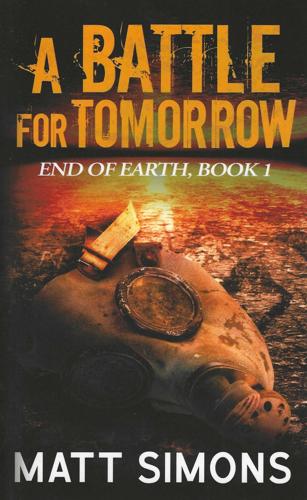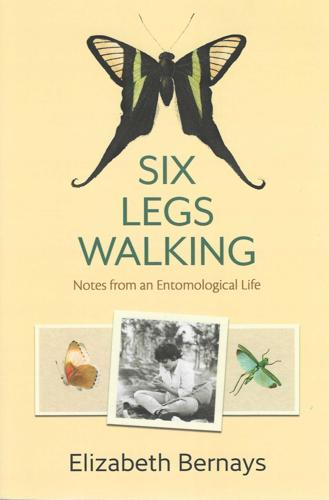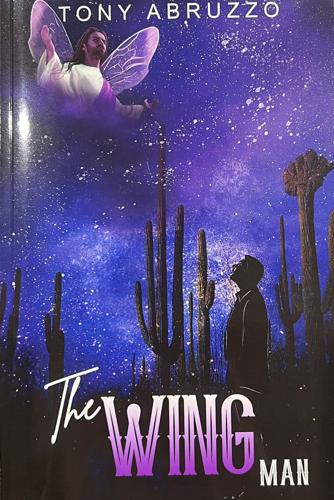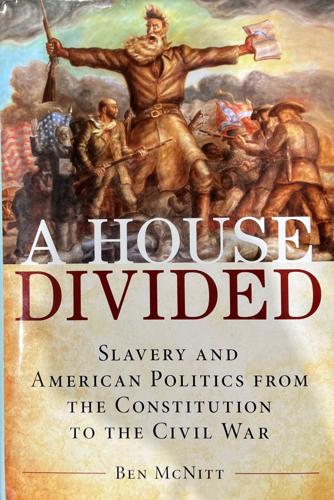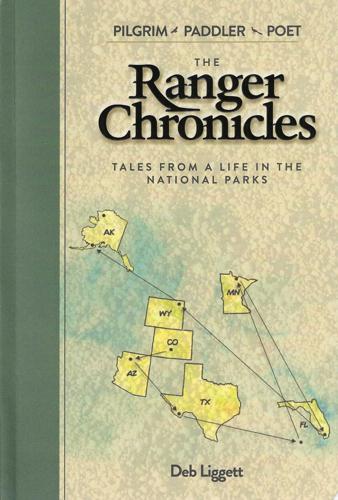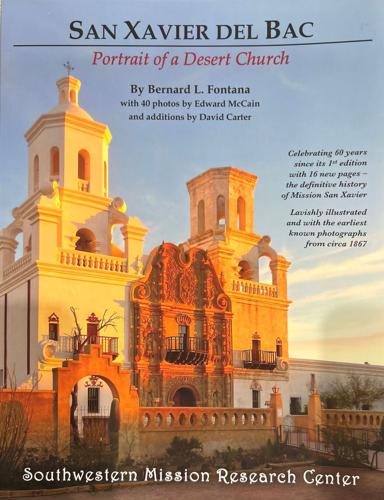“A Battle for Tomorrow: End of Earth Book 1” By Matt Simons. Independently published. 248 pp. $11.99 paperback; $2.99 Kindle.
High school senior Jason Baker is cheating to pass a math test in this novel when World War III breaks out. The kids’ phones sound alerts, the teacher freaks, the test is canceled: North Korea has nuked Hawaii. President Obama reinstates selective service, the world is engulfed in war, and Jason is drafted and sent to boot camp before he has even had a girlfriend. There’s quite a lot of violence, gore, blood-lust, and little hope there, on the front lines, where Jason is sent. But, as we’ve witnessed recently, there’s quite a lot of violence, gore, blood-lust and little hope in war, period.
The question this novel poses is “what do you do when you see all your friends die?”
“A Battle for Tomorrow” is Tucson musician Matt Simons’ first novel — with three more planned. He has created a sympathetic central character — flawed, but loyal and well-intentioned — whom war turns from a math-challenged teenager into a killer. Simons includes an unexpected twist involving time and physics that somewhat redeems Jason, and sets up the next book. This reader will be ready.
— Christine Wald-Hopkins
“Now Is the Best Time Ever to Owe the IRS” By Richard M. Schickel. Independently published. 215 pp. $16.50 paperback; Kindle available.
“Every day,” writes former IRS Senior Revenue Officer (tax collector) Richard M. Schickel, “I seized people’s cash, back accounts, assets, homes, cars, trucks, businesses and anything else I could find. I was very good at being very bad.”
That inside knowledge is what Schickel says gives him the creds to help everyday Americans (and their tax professionals) deal with “the most dangerous creditor in the world” — the IRS. Now an “enrolled agent” helping taxpayers, Schickel buddies up to the reader and offers what seems to be pretty sage advice. This is not a book for the 1% or big business, who pay no taxes, but for the hapless middle-class wage-earner who might have fallen behind in tax payments.
As was apparent in the recent tax season, the IRS is understaffed, overburdened and technologically archaic. This is the time, says Schickel, when you can make a deal with the government.
And “never file more than the last six years’ delinquent tax returns” he writes. “Not ever.”
— Christine Wald-Hopkins
“Six Legs Walking: Notes from an Entomological Life” By Elizabeth Bernays. Raised Voice Press. 174 pp. $16.95.
As a child in Queensland, Australia, Elizabeth Bernays tested consistently last in her class. She underwent guidance counseling, was deemed “subnormal” and was career-counseled to become a shorthand typist. School was no fun for young Elizabeth, but bugs — which she would watch for hours in her mother’s garden — were. Later — having eschewed shorthand training, and graduating from university with honors in zoology and entomology — she would turn insect-love into successful scientific pursuit. In this fascinating memoir, Elizabeth Bernays, Ph.D. in entomology and MFA in creative writing, draws readers into her world.
We see her grasshopper-counting in a Nigerian cassava field, shuddering through a sandstorm in the Sahara, surviving a sex-steamy government lab in 1960s London. She describes the step-by-step molting of a grasshopper and arduous climb of a larva up a sorghum plant.
She writes of arriving for a professorship at UC Berkeley to find no lab equipment, and finally, landing in the Sonoran desert — Bernays is a UA Regents Professor Emerita in Entomology. Covering questions, experiments, discoveries, explorations, musing over insects’ relations with plants, and their similarities with the human animal, this luminous work well deserves the Arizona/New Mexico Award for Memoir it won.
— Christine Wald Hopkins
“The Wing Man” By Tony Abruzzo. Austin Macauley Publishers. 185 pp. $11.95 paperback; $4.50 e-book.
Vietnam War veteran and retired Tucson attorney Tony Abruzzo has cast Vietnam vet and Tucson attorney Ben Russo as central character in this locally set crime novel.
Inspired by four real-life situations — a friend nearly killed in Vietnam, a client murdered and dumped in the desert, an unsolved double homicide, and the defense of a brain-damaged man — Abruzzo’s book consists of four episodes: Young Vietnamese women are sex-trafficked in the US, and Russo makes an unlikely connection. The body of a troubled client of Russo’s is found violated in the desert. When a client’s son and pregnant girlfriend are murdered, Russo makes a risky call. And Russo takes one final risky call defending a vehicular manslaughter defendant with a traumatic brain injury.
Through these, and other dangerous events, Russo has experienced the presence of a “bumblebee-winged man” — a guardian angel (the “wing man”) of the title. In his epilogue, Abruzzo speaks directly to the reader: “Whether one believes in a God, an energy, a spiritual power that orchestrates the world … forces of love and generosity exist in everyone’s life….” They don’t have to be literal guardian angels.
— Christine Wald-Hopkins
“A House Divided: Slavery and American Politics from the Constitution to the Civil War” By Ben McNitt. Stackpole Books. 504 pp. $32.95; Kindle $19.88.
The pervasive influence of slavery on the political history of the United States, from the time of the founding fathers up to the Civil War, is the subject of this epic tour de force, which effectively dispels the mythology, misinterpretation and selective memory about the “peculiar institution” by letting the events and players speak for themselves.
Although guided by historical scholarship, author Ben McNitt is not a historian. He is, however, a political reporter with an impressive résumé, and here he displays a journalist’s determination to dig for verifiable facts and present them in an organized, unbiased way that makes for compelling reading.
Relying heavily on primary sources, McNitt deliberately “includes more and longer quotes than similar works,” allowing the story to be conveyed by those who lived it, without being paraphrased.
This comprehensive survey of 85 years of tumultuous American history is an intriguing pivot from the accepted historical narrative that portrays slavery as having had only a sporadic impact on the nation.
Slavery’s pull, says McNitt was continuous, and he demonstrates how, beginning with the drafting of the Constitution and the horse-trading that created protections for slavery as a concession to the skittish Southern states that threatened to bolt the fragile union. Slavery’s divisive impact on the nation’s political life was constant, and it continues to reverberate, as this compulsively readable narrative shows.
Now retired, Ben McNitt has worked for CBS News and was a Mid-East correspondent and bureau chief for CNN. He lives in the desert north of Tucson.
— Helene Woodhams
“Pilgrim, Paddler, Poet: The Ranger Chronicles” By Deb Liggett. Illustrations by Nathalie Aall. Jackrabbit Press. 172 pp. $21.95.
Enchanted by the ineffable murmur of chokecherries ripening and mist rising, nature-loving author Deb Liggett longed to be one with the sound the “earth makes when it prays.” As ambitions go, this may appear a bit elusive, but Liggett took a practical approach: She became a National Park Service ranger, working in the country’s most awe-inspiring places.
With this marvelous volume of essays, she recounts memorable events in an adventurous career most readers can only dream about.
Park rangers belong to a nomadic tribe, says Liggett, apropos of assignments that took her from the Florida Everglades to the Alaskan Peninsula, and numerous points in between. She shares her taste for spectacular vistas and outdoor life with husband and Park Service colleague, Jay, who married her, she says, because she could hike; together they measured success by how many weeks they slept on the ground.
It wasn’t all canoeing and bird-watching, however. Liggett recounts near misses with rattlesnakes, brown bears, Hurricane Andrew and the occasional politician, with a keen eye for detail and irrepressible humor.
This collection, charmingly illustrated by Nathalie Aall, is a joy to read. Liggett effortlessly mixes her reverence for the natural world with the day-to-day realities of ushering visitors through the National Parks, living fearlessly and never failing to count the stars; it has the freshness of a mountain breeze. Retired now, Liggett, whose award-winning work has appeared in numerous magazines, lives in Tucson.
— Helene Woodhams
“San Xavier Del Bac: Portrait of a Desert Church, 6th ed.” By Bernard L. Fontana, edited by David Carter; photographs by Edward McCain. Southwestern Mission Research Center; 88 pp; $15.95. Available at the San Xavier gift shop, the Book Stop, and other locations in and around Tucson.
The definitive history of San Xavier del Bac has been released in an updated edition by the Southwestern Mission Research Center, marking the book’s 60th anniversary. Written by the Center’s founding director, anthropologist and historian Bernard “Bunny” Fontana, this comprehensive portrait of a Southern Arizona landmark has long been recognized for its scholarship, extraordinary photographs from as early as 1867, and the invaluable information it contains about the church’s construction, its architectural and social history, and its significance as the nation’s finest surviving Spanish Colonial mission.
Until his passing in 2016, Fontana was the leading expert on Mission San Xavier. His wish for this sixth edition was that it include more coverage of the O’odham, on whose reservation the mission is located. Editor David Carter, a docent for the Patronato San Xavier and a member of its Conservation Committee, has ably responded with 16 pages of updates that include enhanced reporting on the Mission’s indigenous neighbors.
Carter also incorporates changes that have occurred in the seven years since the 5th edition including new findings, ongoing restorations, the impact of COVID, the status of the campaign to canonize Padre Eusebio Francisco Kino, and 40 stunning photographs by Edward McCain — all of which serve to remind readers that the mission is not a monument frozen in time, but a beloved living church. This essential book on San Xavier del Bac is a fine addition to any desert library.
— Helene Woodhams


